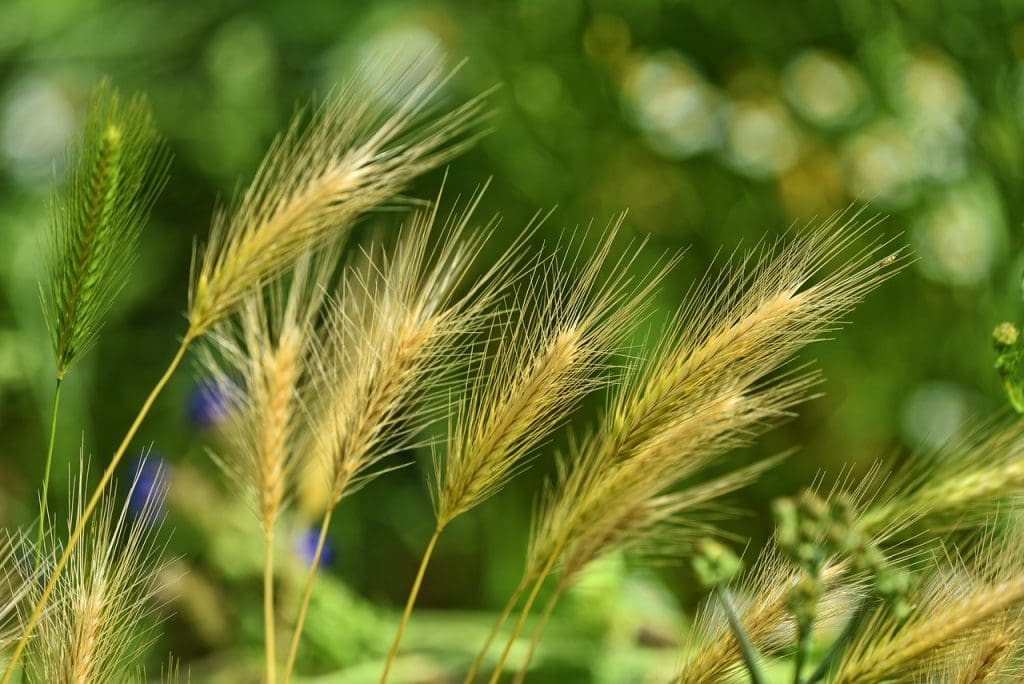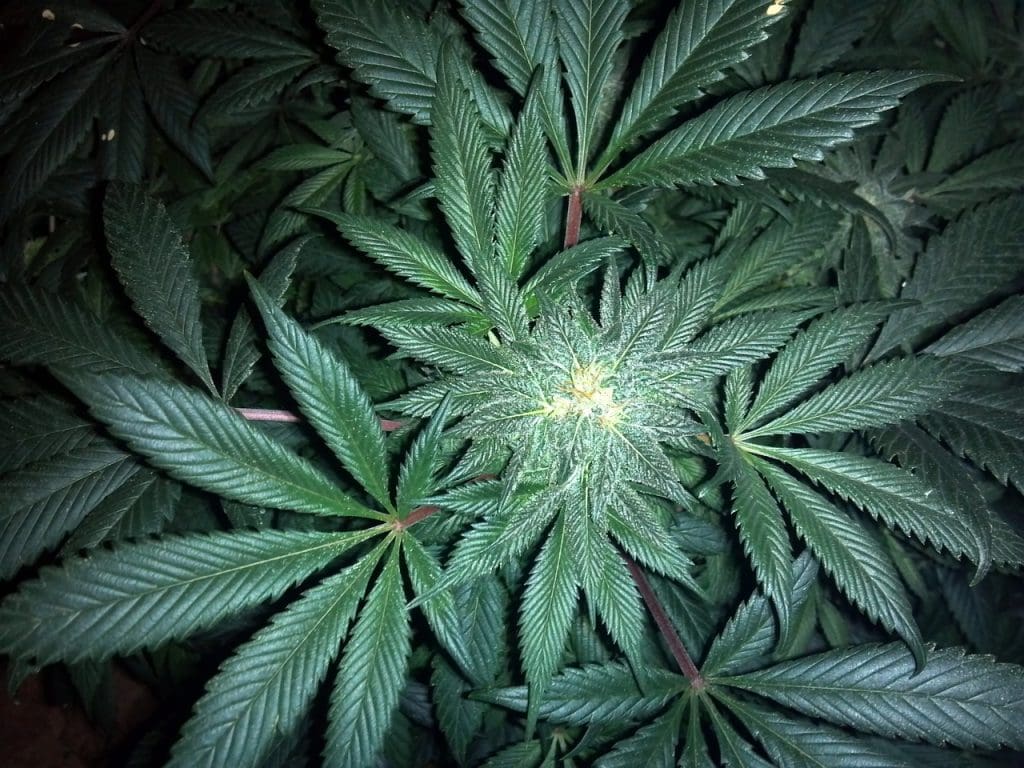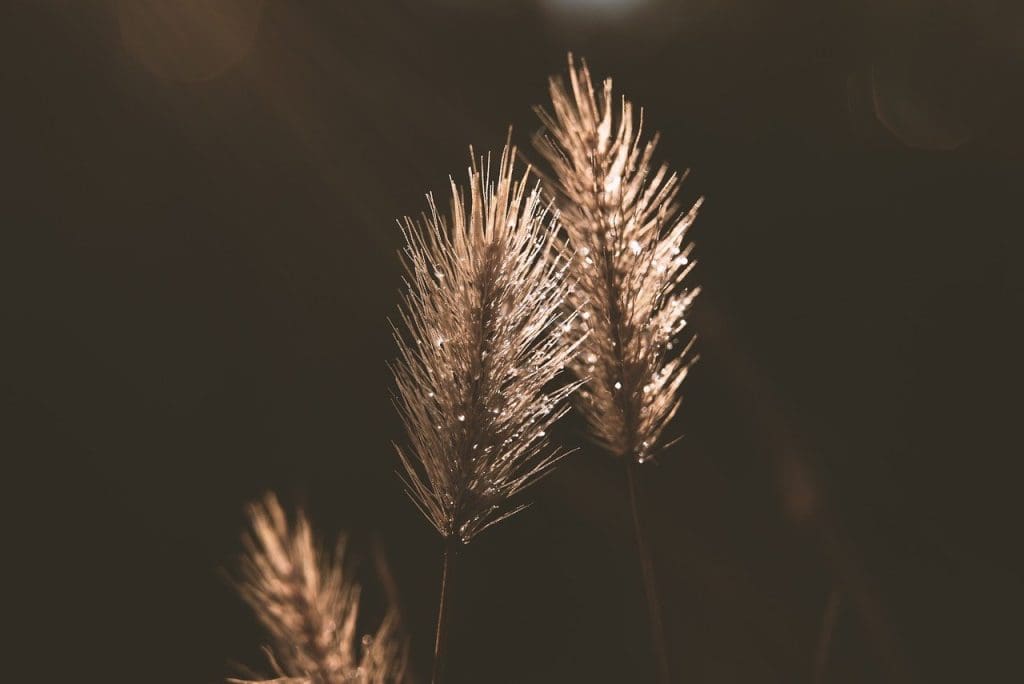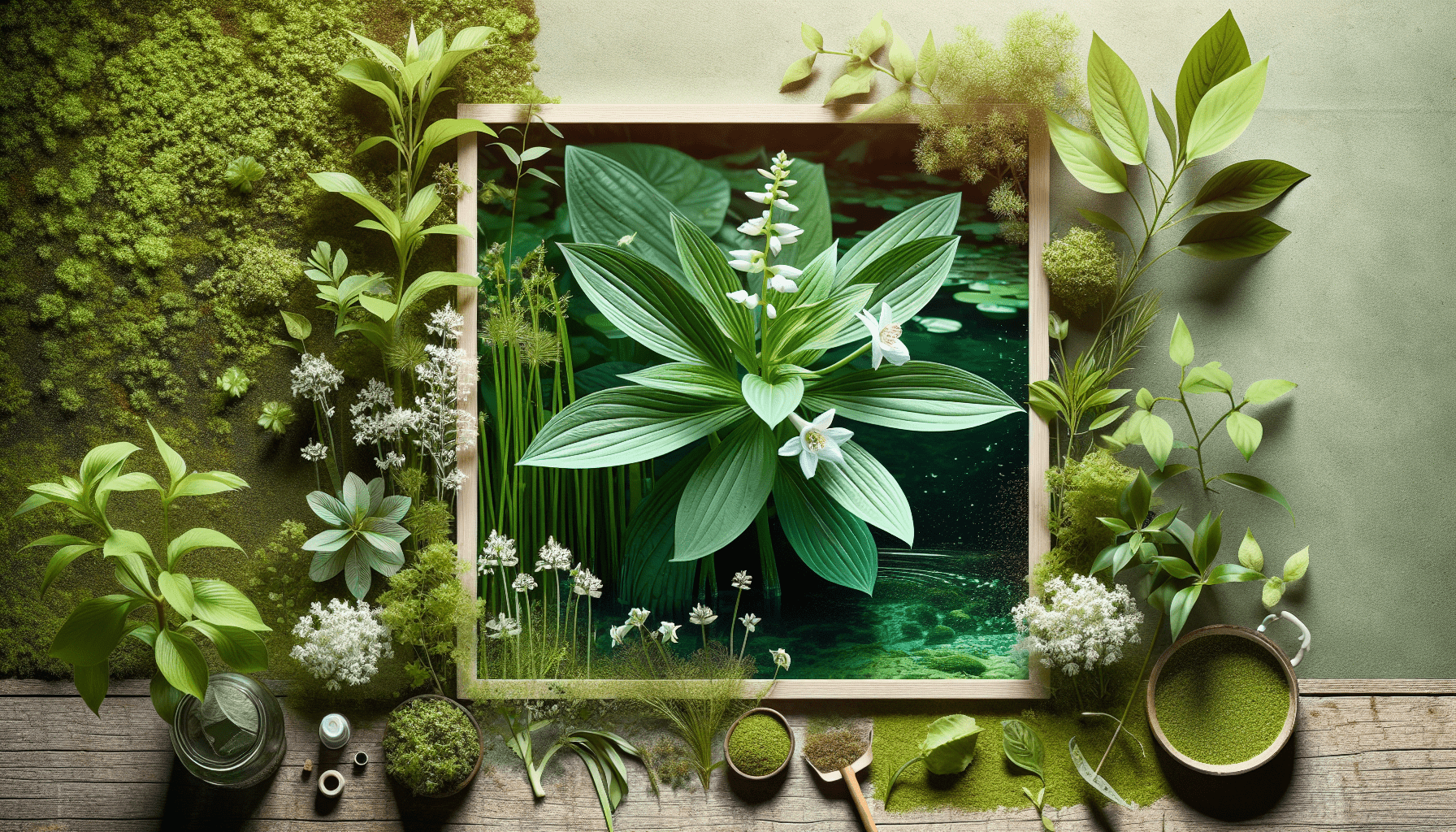In “Top Ways To Naturally Eradicate Alligator Weed Without Chemicals,” you will discover practical and eco-friendly solutions to get rid of this pesky invader from your garden or yard. Whether you’re a seasoned gardener or just someone who enjoys a tidy outdoor space, these natural methods can help you control and eliminate alligator weed without resorting to harmful chemicals. Dive in, and learn how you can protect your local ecosystem while effectively managing this stubborn plant. Have you ever found yourself wrestling with the persistent invasion of alligator weed in your garden or backyard? If so, you’re not alone! This tough, aquatic invader can spread quickly and take over valuable space, choking out other plants. While many turn to harsh chemicals in desperation, these can harm the environment and even affect your health. Fear not! There are numerous natural, eco-friendly methods to effectively tackle and eradicate alligator weed without relying on chemicals.
What is Alligator Weed?
Alligator weed (Alternanthera philoxeroides) is a fast-growing perennial plant that thrives both on land and in water. This invasive weed can form dense mats, disrupting native ecosystems and hindering water flow. It can also deprive other plants of sunlight and nutrients, making it a formidable adversary for anyone looking to maintain a healthy garden or landscape.
The Importance of Natural Control Methods
Using natural methods to control alligator weed is more beneficial for the environment and safer for your family and pets. Chemical herbicides can cause unwanted side effects like soil degradation and water pollution. By utilizing eco-friendly techniques, you can manage this invasive plant while also preserving the natural ecosystem.
Identifying Alligator Weed: A Critical First Step
Before diving into eradication methods, it’s vital to accurately identify alligator weed. Misidentification can lead to ineffective treatment and wasted effort.
Characteristics of Alligator Weed
Here’s a table summarizing the key characteristics of alligator weed to help you correctly identify it:
| Feature | Description |
|---|---|
| Growth | Forms dense mats both on water and land |
| Stems | Hollow, hairless, and can root at the nodes |
| Leaves | Opposite, simple, and lance-shaped with a smooth margin |
| Flowers | Small, white, and grow in clusters known as spikes |
| Root System | Extensive, with roots capable of reaching deep into the soil or extended across water surfaces |
| Reproduction | Primarily by vegetative means; fragments of the plant can regrow into new individuals |
Once you’ve confirmed the presence of alligator weed, you’re ready to explore various natural eradication techniques.

Manual Removal: A Hands-On Approach
Manual removal is one of the most straightforward and immediate methods to control alligator weed. This method is labor-intensive but can be highly effective if done correctly.
Steps for Manual Removal
- Preparation: Before you begin, gather necessary tools like gloves, a trowel, and a bucket. Make sure to wear protective clothing to avoid skin irritation.
- Uprooting: Carefully pull out the weed, ensuring you remove as much of the root system as possible. Pay particular attention to removing fragments, as alligator weed can regrow from small pieces.
- Disposal: Place removed plants in a bucket. Do not compost or leave them on the ground, as fragments can easily take root again. Instead, place them in a sealed black trash bag or burn them if local regulations allow.
Tips for Effective Manual Removal
- Timing: Conduct manual removal during early growth stages before the plant has a chance to establish a deep root system.
- Consistency: Repeated efforts are often necessary. Make it a routine to inspect and remove any new growth regularly.
- Water Management: If the infestation is in a wet area, consider temporarily draining the site to ease manual removal.
Mulching: Smothering the Weed
Mulching involves spreading a thick layer of organic or synthetic material over the soil to block sunlight, which is essential for alligator weed’s growth.
Types of Mulch Suitable for Alligator Weed
| Type of Mulch | Description |
|---|---|
| Organic Mulch | Includes shredded leaves, straw, or wood chips. Adds nutrients to the soil as it decomposes. |
| Synthetic Mulch | Includes black plastic or landscape fabric. Highly effective in blocking sunlight but doesn’t decompose. |
How to Apply Mulch
- Preparation: Clear the area of any visible alligator weed and other debris.
- Layering: Apply a thick layer (at least 4-6 inches) of mulch over the infested area.
- Maintenance: Check periodically to ensure the mulch layer remains thick enough to block sunlight. Add more mulch as needed.
Benefits of Mulching
- Weed Suppression: Effectively prevents sunlight from reaching the soil, hindering weed growth.
- Soil Health: Improves soil structure and fertility (organic mulch).
- Moisture Retention: Helps retain soil moisture, benefiting other plants.

Water Management: Drying Out the Enemy
Alligator weed thrives in moist environments. Therefore, effective water management can significantly reduce its growth.
Techniques for Water Management
- Reducing Irrigation: Adjust your watering schedule to avoid over-saturating your lawn or garden.
- Improving Drainage: Install drainage systems like French drains or rain gardens to divert excess water away from infested areas.
- Creating Dry Zones: Use berms or raised beds in your garden to minimize water retention and discourage alligator weed growth.
The Role of Water Management
A well-drained, less humid environment is less conducive to the growth of alligator weed, which prefers wetlands and moist areas. By managing water effectively, you create conditions that favor other plants and discourage the proliferation of this invasive weed.
Biological Control: Enlisting Nature’s Helpers
Biological control involves using natural predators or competitors to manage the alligator weed population. This method is environmentally friendly and can provide long-term control.
Potential Biological Control Agents
| Agent | Description |
|---|---|
| Alligator Weed Flea Beetle | These beetles feed exclusively on alligator weed, causing significant damage to the plant. |
| Alligator Weed Stem Borer | Larvae bore into the stems, disrupting nutrient flow and weakening the plant. |
| Competition with Native Plants | Introducing competitive native plant species can crowd out alligator weed. |
How to Implement Biological Control
- Research: Identify which biological control agents are available and suitable for your region.
- Introduction: Carefully introduce the chosen agents to the affected area. In the case of beetles or borers, you might need to purchase them from specialized suppliers.
- Monitoring: Regularly monitor the area to observe the impact of the control agents on the alligator weed. Be patient, as biological control often takes time to show results.
Benefits of Biological Control
- Eco-Friendly: Minimal environmental impact and reduced reliance on chemicals.
- Sustainable: Offers a long-term solution as natural predators establish themselves in the ecosystem.
- Low Maintenance: Once established, biological agents can continue to control the alligator weed with little intervention.

Solarization: Harnessing the Sun’s Power
Solarization involves using the sun’s heat to sterilize the soil and eradicate alligator weed. While it requires sunny conditions, it is a highly effective method.
Steps to Solarize Soil
- Site Preparation: Clear the area of debris and water the soil until it’s moist but not waterlogged.
- Plastic Covering: Cover the moist soil with clear plastic sheeting, securing the edges with stones or soil.
- Exposure: Leave the plastic in place for 6-8 weeks during the hottest part of the year.
- Removal: After the exposure period, remove the plastic and inspect the soil. Reapply if necessary.
Benefits of Solarization
- Comprehensive Control: Kills weed seeds, pathogens, and even some soil pests.
- Soil Health: While it sterilizes the soil, it does not leave harmful residues.
- Eco-Friendly: Completely natural with no chemical use.
Crop Rotation: Disrupting the Growth Cycle
Implementing crop rotation in agricultural settings is another effective method to control alligator weed. By altering the types of crops planted, you can disrupt the life cycle and growth conditions that favor this weed.
Planning Crop Rotation
- Cycle Planning: Plan a multi-year crop rotation schedule that includes periods of planting non-host crops.
- Non-Host Crops: Integrate crops that are less susceptible to alligator weed, such as cereals or grains.
- Cover Crops: Utilize cover crops like clover or buckwheat to outcompete alligator weed.
Benefits of Crop Rotation
- Soil Health: Enhances soil fertility and reduces pest and weed pressure.
- Diversity: Promotes a more diverse ecosystem, which helps suppress invasive species.

Smothering with Ground Covers
Using dense ground covers to smother alligator weed is another effective strategy. These plants can outcompete the weed by stealing sunlight and nutrients.
Suitable Ground Covers
| Ground Cover | Description |
|---|---|
| Clover | Forms a dense mat that can outcompete many weeds. |
| Periwinkle | Rapidly spreads and forms a thick cover to suppress weeds. |
| Creeping Thyme | Low-growing and effective at crowding out alligator weed. |
How to Implement Ground Covers
- Site Preparation: Remove existing alligator weed and prepare the soil for planting.
- Planting: Plant the chosen ground cover seeds or transplants according to recommended spacing.
- Maintenance: Water and care for the ground covers until they are well-established and effectively smothering the weed.
Benefits of Ground Covers
- Aesthetic Value: Adds beauty and variety to your landscape.
- Low Maintenance: Once established, ground covers require less maintenance.
- Weed Suppression: Provides a natural, chemical-free way to control alligator weed.
Regular Monitoring: The Key to Long-Term Success
No eradication method is completely foolproof, especially against persistent invaders like alligator weed. Regular monitoring and early intervention are crucial in maintaining a weed-free environment.
Steps for Effective Monitoring
- Routine Checks: Conduct regular inspections of your garden or landscape. Make this a part of your gardening routine.
- Early Intervention: Address any new growth immediately using the methods discussed.
- Record Keeping: Keep a log of your monitoring activities and any treatments applied. This can help you track progress and identify recurring issues.
Benefits of Regular Monitoring
- Early Detection: Catch and address problems before they become severe.
- Reduced Effort: Easier to manage small infestations than large-scale invasions.
- Data-Driven Decisions: Helps in making informed decisions about which methods are most effective.

Combining Methods for Best Results
For the most effective control of alligator weed, consider combining several of the above methods. This integrated approach maximizes the strengths of each technique and can lead to faster, more sustainable results.
Example of a Combined Approach
- Initial Removal: Start with manual removal of visible weeds.
- Mulching: Apply a thick layer of mulch to suppress new growth.
- Biological Control: Introduce natural predators like alligator weed flea beetles.
- Water Management: Improve drainage and reduce unnecessary water sources.
By combining these methods, you create multiple barriers to the weed’s growth, improving your chances of successful eradication.
Conclusion
Tackling alligator weed without chemicals might seem daunting, but it’s entirely possible with a range of natural methods. From manual removal and mulching to biological controls and solarization, you have a wealth of eco-friendly options at your disposal. Not only do these methods effectively manage the weed, but they also contribute to a healthier environment for you and your loved ones.
Remember, consistency is key. Regular monitoring and a combination of techniques will yield the best results, ensuring your garden or landscape remains free of alligator weed for years to come. Happy gardening! 🌿
